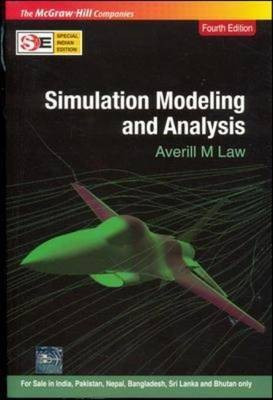Simulation Modeling and Analysis (Sie)(English, Paperback, Law Averill)
Quick Overview
Product Price Comparison
Simulation Modeling and Analysis provides a comprehensive, state of the art, and technically correct treatment of all important aspects of a simulation study. The book strives to make this material understandable by the use of intuition and numerous figures, examples and problems. It is equally well suited for use in university courses, simulation practice and self study. Key features Latest statistical techniques for estimating the performance measures of a simulated system, both for terminating and steady-state simulations. Comprehensive and practical discussion of how to validate a simulation model. Ranking and selection procedures for choosing the best system configuration, which allow the use of common random numbers for increased efficiency. Self-contained discussion of classical design of experiments, with a particular emphasis on how to correctly implement these techniques in the context of simulation modeling. Several detailed examples on the use of simulation based optimization. Pedagogy Solved examples, 209 Practice problems, 273 Latest statistical techniques for estimating the performance measures of a simulated system, both for terminating and steady-state simulations. Self-contained discussion of classical design of experiments, with a particular emphasis on how to correctly implement these techniques in the context of simulation modeling. Several detailed examples on the use of simulation-based optimization. Salient Features Latest statistical techniques for estimating the performance measures of a simulated system, both for terminating and steady-state simulations. Comprehensive and practical discussion of how to validate a simulation model. Ranking and selection procedures for choosing the best system configuration, which allow the use of common random numbers for increased efficiency. Self-contained discussion of classical design of experiments, with a particular emphasis on how to correctly implement these techniques in the context of simulation modeling. Several detailed examples on the use of simulation-based optimization. Pedagogy Solved examples: 209 Practice problems: 273


